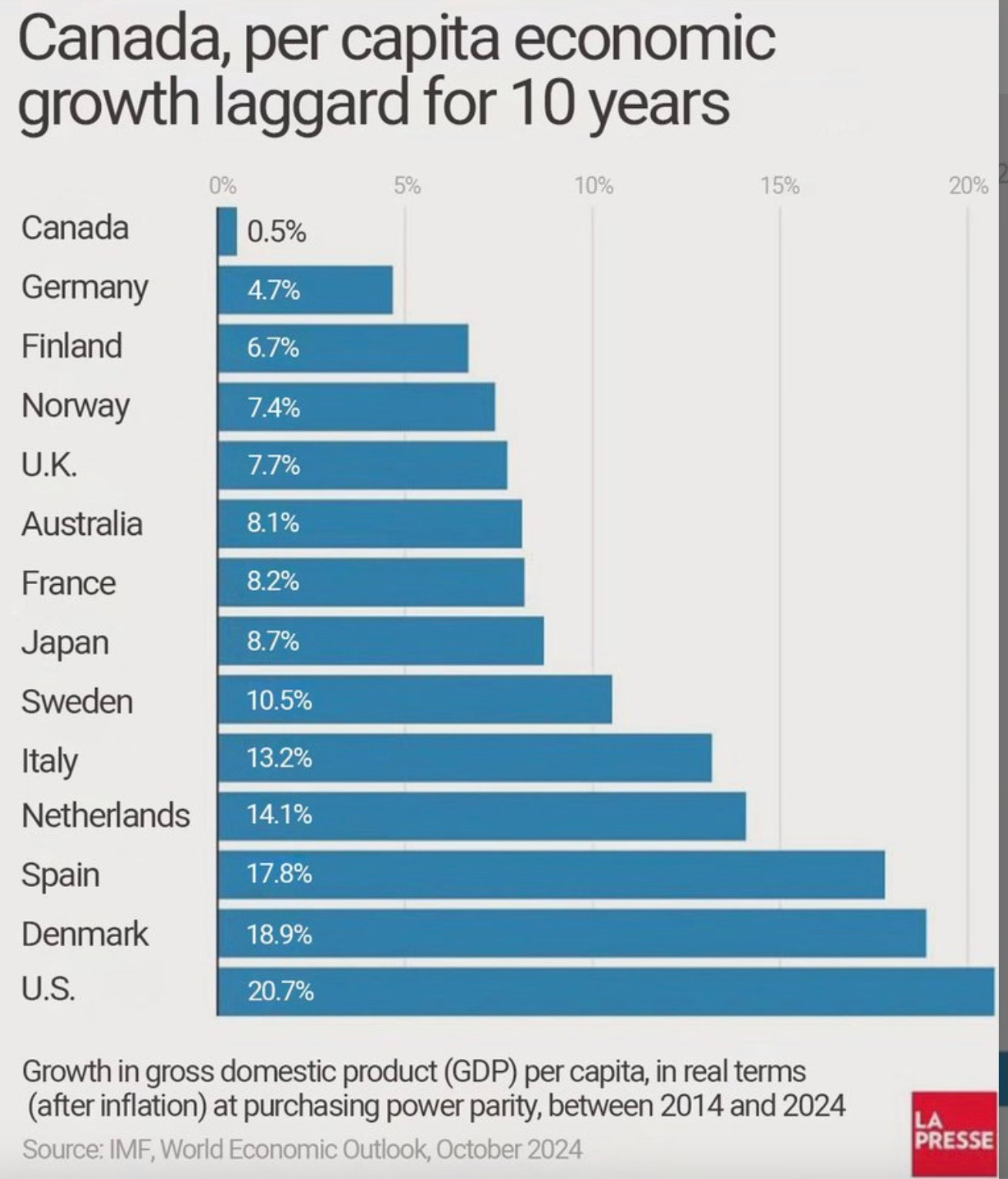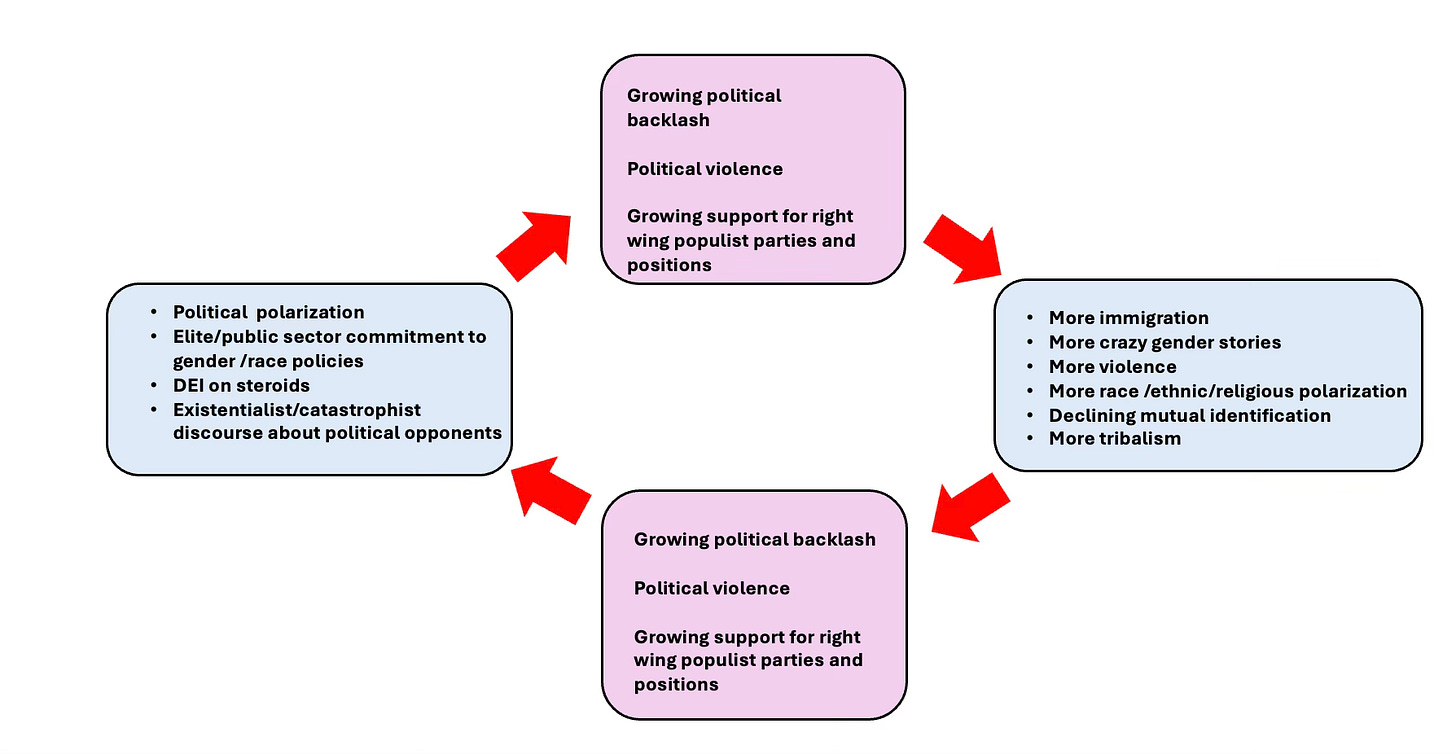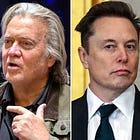Postliberalism and the Great Game:
The post-national state is a fantasy but nationalist reassertion will not bring back liberalism
Trump plays Westphalia Bigley
Looking at America under Trump, Musk and Vance compared to Mark Carney, Olaf Scholz and Kier Starmer — you can’t help but wonder at the qualities of leadership on either side. Time was when Europeans used to laugh at uneducated and gauche quality of American politicians upon whom they looked down — an ostentatious political nouveau riche. Barak, urbane Hussain, Obama gave the self-loathing Europeans something to stuff in their pipe and smoke. He was a sophisticate, a salon-wallah. One of their own. But with Trump and Biden the natural order was resumed. The oikish tycoon and the senile apparatchik could both be relied upon to make British and French politicians feel superior. The term hubris doesn’t come close when you consider the long string of second rate, wannabes that have held the reins in Britain.
The present crop of B-list Machiavellians appear to have misjudged Trump’s political acumen and leadership whilst grossly overestimating their own. It turns out that he’s the real deal — the Prince — calling their bluff in every policy arena. The so-sophisticated Europeans put their fingers in their collective lug-hole when JD Vance had the temerity to say that America was not in the business of supporting self-immolation. He wasn’t telling Europe what to do — nor acting like a colonizing bully. He just said normal stuff like: ‘if Europe wants to fight a long and crippling war with Russia — that’s fine, but they can’t do it with American lives and money’. He’s clearly right. If the Europeans don’t want to spend money on a big military, or to have the kind of cohesive solidaristic national mythos that might attract military recruits at 10 or 20 x the current rate — then proposing a never-ending war with a regional superpower that has a seemingly endless capacity for absorbing pain and suffering, is just a bad idea, period. The most pointed and laughable metonym for this stupidity was the RAF’s overt rejection of white men in favour of diversity. They are now simply unable to recruit enough pilots to fly the few planes left in our depleted squadrons — the lowest in history, shrinking by half between 2010 and 2020.
Trump is not your Daddy
The reaction to Trump’s tariff threats in Canada and elsewhere has been revealing. When we arrived in Ontario 12 years ago, Victoria Day was a glorious community celebration and Canadian flags were everywhere. This was a shock. In England prideful displays of the Union Jack let alone an English George’s Cross, were dismissed derisively by the metropolitan literati — at best seen as Little Englander Jingoism fit only for ‘white van man,’ but increasingly as evidence of ‘nationalism,’ or even fascism and white supremacy. After 2016 the Canadian flag began to accrue the same aura of ideological impurity. So there has been something quite bizarre about middle-class liberal Canada suddenly falling back in love with the flag. To be honest, if that’s what it takes to rehabilitate Canadian self-love and pride, then I’m all in.
But the anger levelled at Trump feels more like a teenage tantrum in the face of a stern father. After all, strictly speaking, Trump has a point. Canada DOES level 250% tariffs on agricultural produce. It DOES run an 80 billion dollar trade surplus. It DOES free ride on America defence expenditure, refusing to spend even the requisite 2% GNP Nato minimum. Like Europeans, Canadians really seem to think America owes them something. Why? And why would Trump in particular cherish special relationships with countries whose political classes have gone out of their way to insult and vilify him personally? Starmer even sent Labour activists to work for the DNC and the Harris campaign. Frankly, they take the piss. Politicians on both side of the pond routinely whip up public anger against the United States even whilst taking advantage of unequal tariff regimes.
The Canadian response is incoherent on all sorts of levels. The entire shtick of the Green Party is that globalization is bad, more self-sufficiency is desirable and localization is good. Logically, they should have welcomed with open arms, any reduction of trade — especially in raw materials. After all economic contraction is the raison d’être of the degrowth movement. Not so — apparently. They were quick to join the seal chorus of condemnation. The infringement on the principle of free trade was:
“ an assault on Canadian sovereignty, values, and our ability to chart our own future.”
Think about that. Greens get exactly what they have wanted for decades— which is to say a brake on global trade and the growth economy — and they immediately throw a wobbly.
Canadian liberals condemn infringements on free trade, but refuse to look at trade barriers between Canadian provinces. Canadian and European leaders routinely bash the lack of regulation in American capitalism. And much of this is really legitimate. The EPA allows thousands of chemicals to be used in the North American food system that are banned, with good reason, in Europe.
But — that deregulation accounts for much higher levels of productivity and growth. Canada’s per capita economic growth for the last 10 years was 0.5% compared with America at 20.7% — a 20 fold shortfall. The UK figure was a less than respectable 7%.
IMF data courtesy of Republic of Canada.
But you can’t denounce the lack of regulation but then seek to benefit from it — through an indefinite defence spending subsidy to the tune of 2-4% of GDP per year. That is about $64billion for Canada. This is a massive amount of money that American social democrats could be spending on their own public health system, their own schools etc.
Even more egregiously, liberals are failing to see a gift horse for what it is. For the first time in history that there is a serious opportunity to align American environmental and agro, food and pharmaceutical standards with those of Europe. RFK is serious. The American right is waking up to the crisis in public health that has unfolded in the wake of the 2nd industrial revolution. If this agenda takes root — it could play an important part in levelling the playing field between the US and Europe. And the current negotiations over the reconfiguration of the trade regime should be seen in this light — as a massive opportunity.
An opportunity denied by ideology
Nevertheless, from a position of unprecedented economic and military weakness, and against an existential threat to social order and cohesion coming from mass migration, default positions among leftist politicians across the West include:
(a) that Trump is an ‘actual fascist’;
(b) that multiculturalism is working just fine and should be supported as an article of faith on pain of imprisonment;
(c) that men can be women;
(d) that transrights are more sacred than other human rights; (e) that Islam deserves special protection in law;
(f) that Christianity is uniquely culpable for any thing bad in the world (from the climate crisis to the oppression of women);
(g) that Islam is a religion of peace;
(h) that the single liberal, democratic and law-governed society in the Middle East in which Muslim, Christian and Jewish citizens enjoy equal rights, is an apartheid, Fascist state;
(i) that the definition of genocide depends mainly on the identity of the perpetrator;
(j) that the free movement of labour and capital which undergird globalization are to be understood as universal natural laws;
(k) that free speech is a weapon of the far right;
(l) that ethnic identity is a universal human right for all groups — except for white Europeans, in which case it is a marker of fascism and white supremacy;
(m) that money grows on trees or can be taken from the wallets of rich people in perpetuity, in order to finance any amount of public sector spending, without any adverse impact on incentives or behaviour on behalf of either the recipients of the spending or those rich people with the wallets … and so on.
Mostly it is enough to invoke a single, obvious and taken for granted motif — Trump’s election marks the literal end of the world and the collapse into fascism and climatic apocalypse.
It goes without saying that most of this is simply unhinged and ungrounded in any kind of evidence or rational discussion. Since cross-party debate between ideological adversaries has been more or less impossible since 2016, for the left, the information negative feedback loop has simply stopped working. For the period of postwar consensus, the political left and right functioned as mutually self-correcting loops that pushed politics towards the centre. As the Democrats move to the left and the Europeans double down on progressive open-border policies and the failed religion of multiculturalism, it’s clear that liberal political systems have become entrenched in a positive feedback loops that are self-reinforcing and are moving the system toward instability and chaos.
This is why, defeat after defeat, they seem unable to self-correct. When Democrat leaders in America are trying to bring violent, foreign tattooed rapists and murderers back into the country — because ‘Orange man bad’ — you know that something is severely amiss in their basic apprehension of the world. The same is true across Europe on the subject of immigration, and with the Scottish National Party as it doubles down on crazy transgender policies even after the Cass report.
One significant reason why the left seems unable to break out of this loop is that in the Anglophone world especially, but also Western Europe, progressives as a class have become detached from a national habitus and sensibility. Orwell famously noted this about the intellectual leftists in 1940s England (in the Lion and the Unicorn). But with the virtual world of the Internet, these people have really created a culture that is perfectly cosmopolitan and unanchored from any place or territory. I have written about transformations in the nature of internationalism here.
The most significant thing is that there is here a version of the Master—Slave dialectic operating on steroids. The progressive class now have no idea at all how ordinary people are thinking — and especially those most peripheral from the global system, and with the most to lose from further integration, and the ideology of open borders. In their inability to read the popular mood, they have become a very particular instantiation of what C.S. Lewis called ‘men without chests’ — which is to say animated by intellectualistic, rationalized, abstract but substantively irrational ideas (of global equality, or human sovereignty from biological constraints). The ‘men without chests’ have become ‘(wo)men without countries’
The ‘men without chests’ have become ‘(wo)men without countries’
Post-national politics
About ten minutes ago, Trudeau was telling anyone who would listen that Canada was a ‘post-national state’. Every moronic Canadian university is embracing the new self-flagellating religion of decolonization and indigenization — and actively discriminating against white men in affirmative action hiring decisions, at every opportunity (this despite the gathering pace of the vibe shift against DEI further south). Even as Sweden experiences 30 bombings in a single month, the liberal elites in Europe effect shock-horror (laced with condescending moral superiority) at Trump administration actually deporting tattooed gang members and terrorist supporters. The UK is changing sentencing guidelines to institutionalize two tier justice — a move directed against white male defendants. Watching support for the AfD double, and witnessing regular acts of Islamic terrorism, German liberals are flat-out refusing to countenance any measures to reduce immigration, choosing instead, like the UK, to criminalize verbal dissent.
These examples are connected because they go to the heart of the peculiar innovation of modernity — namely the ‘nation-state.’ States are as old as civilization. The etymology of nations is more complex and controversial — but certainly the Biblical Jews of Exodus constituted a nation which is to say:
(i) a community much larger than a local kinship community or tribe;
(ii) in which individual membership and identity pertained directly to the larger unit (Jews as God’s chosen people) rather than being mediated by a hierarchy of fission/fusion kinship segments of the sort described by Evans Pritchard in relation to the Nuer of Sudan.
(iii) and in which there is a sense of manifest collective destiny (a community of fate).
Nevertheless, Israel aside, subjective nationhood tied to ethnicity, ideology, language and culture and linked to a territorially-defined state is relatively new and came into being in the modern era with England, France, the United States and the Netherlands, and became a required prerequisite for modernization in the aftermath of the French Revolution. The defining characteristic of nation-states is the notion of membership of a political community (citizenship) and forms of individual identification and border control (passports) to policy entry and exit to the polity. Citizenship becomes the sine qua non of liberal democracies precisely because it is the means of attributing legal rights and responsibilities across aggregations of millions of unrelated individuals.
Citizenship — and policed membership — is the mechanism that makes possible a routinized and legitimate taxation system, which in turn makes possible the range of public expenditures upon which the society comes to depend: the military, education, universities, health systems, the welfare state, roads and infrastructure etc. Because of this the welfare state was NEVER about human rights, but always predicated on a political social compact and citizen rights. Social democracy, the cornerstone of the left throughout the 20th century, was always an exclusive solidarity. By definition, it refers to payments and transfers that operate as a function of membership — or not. The ‘or not’ clause was always important, but was never much of an issue so long as the number of undocumented or illegal migrants was negligible. But even legal migration had consequences because the legitimacy of the taxation and policing regime depended on a kind of fiction — the ‘imagined community’ (Anderson) with its ‘invented traditions’ (Hobsbawm). I have gone into detail elsewhere, but the key thing is that it all hangs together to the extent that millions of citizens across the national territory can identify with each other ‘as a nation’. For that exclusive form of solidarity to operate, we have to believe (or perhaps be tricked into believing) that all those strangers are effectively part of our family — kith and kin, skin and blister, and at minimum, brothers from another mother. This is easy enough in a small country, where everyone looks the same and they all talk Finnish. The more diverse the country, the more coercive the lead-time to construct a nation-state; and the more ascriptive and integrative will have to be the culture and policies necessary to hold it together.
Either way, without an authentic and deeply-felt subjective experience of nationhood and tightly controlled borders — there can be no welfare state. Whatever Trudeau and now Mark Carney — and it has to be said, all the liberal professors and CBC/MSM journalists banging on about decolonization and indigenization — whatever they understood by the idea of a post-national Canada, it was not the end of the welfare state. And yet this is what they are inviting. Mass migration and the cultural destruction of the national mythos — whether the decolonization of Shakespeare in the UK this week, or the decolonization of Canadian universities — can only lead to one place: a state without a nation. History is full of nationless, multi-ethnic states and empires. Until the treaty of Westphalia — which against the logic of Christendom, institutionalized the idea of distinctively national religions — polities of this kind were the norm. But none of them had welfare states or national social compacts.
The ‘post-liberal moment’ is not a moment
Post-nationalism of the sort mouthed by Trudeau was the liberal atheist equivalent of talking in tongues. It was the logical end point for Fukuyama’s infamous End of History pronouncement after the fall of the Berlin Wall. The re-emergence of geo-political realism and a world of competing nation-states does not signal the end of liberal democracy or of global politics. It does signal the end of globalist-liberal ideology: the easy and even facile assumption of a smooth transition into a global ‘administration of things’ (aka governance by tech-xperts).
If nationalism is back, with a will to police strong borders and insist on civic membership as the basis of rights and duties, does this mean that the future will be liberal — in an old school national way? Not necessarily. The damage to the mythos and social compact of many European nation states has already been done. With diverse and polarized populations and a large and growing Islamic minority and liberal elites that are unable and unwilling to re-forge the kind of cultural we-identity that would be required, it seems likely that the Europe is in for a near-bad-future of fiscal crisis, the erosion of welfare and public infrastructure, economic stagnation, likely military defeats and an internal balkanization marked by ethnic and religious violence. Something like this level of of violence is already happening in southern Sweden. In the UK, the cultural barriers are firmly established across many major cities; the sectarian Islamification of politics is underway; and endemic communal conflict seems a racing certainty (David Betz etc).
In this circumstance, ontological coherence and social cohesion may be ‘national’ as such in a more limited and contested sense. It is hard to imagine a renewal of spirit of Dunkirk or Vimy Ridge any time soon. It is likely that, in tandem with level of the state, mutual identification may to operate more within smaller, place-bound communities — as it always did in the Jewish ghetto, but also in the UK with dissenter communities (like the Quakers), post-Reformation Catholics in some areas. Such subsidiary loci of ‘we-identity’ may be benign — as with the Mennonites in southern Ontario. But they may also develop into an incipient tribalism. This is much more likely with Britain’s urban Islamic communities. In this case, there are likely to be tensions and conflicts not just between contesting communities but between such communities and the state.
In a previous post:
I was less generous than
(here) to ‘Lucien Chardon’s’ critique of postliberalism as a stalking horse for statist socialism. She observed that perhaps I had underestimated the cultural impact of Covid on young people in entrenching an aversion to collectivist, thick-cultural responses to ongoing crisis. I think this is probably true in the short term. But aside from the fact that top-down collectivism is the opposite of bottom-up, communitarian subsidiarity, the post-liberal movement can’t be over if only because liberalism is in its death throes. To the extent that it was predicated on a population of mobile, deracinated, rational individual citizens who’s allegiance is only to the state — the national we — liberalism depended upon and coevolved with the nationalism: not any old state but the nation-state. Nationalism and liberalism are asymmetric. The nation-state can exist without liberalism. Liberalism can’t persist without the nation state.
Can our humanity survive the circular economy?: On edible insects, lab-grown meat and 'going green'
The next more or less stable configuration of national society will not be liberal, nor as individualist as Chardon would like. It could turn into the nightmare of digital collectivism and authoritarianism that provides a recurring nightmare not just for those at the Pimlico Journal, but for all right wing, conservative and Christian observers. In the longer term, it could conceivably engender the kind of communitarian solidarity and mutualism rooted in subsidiarity which I intimated in the previous pieces (above). But not without a Gramscian war of movement, and I would hazard also, not without the reemergence of a vigorous and united form of Christianity as the foundation for culture and economy.









